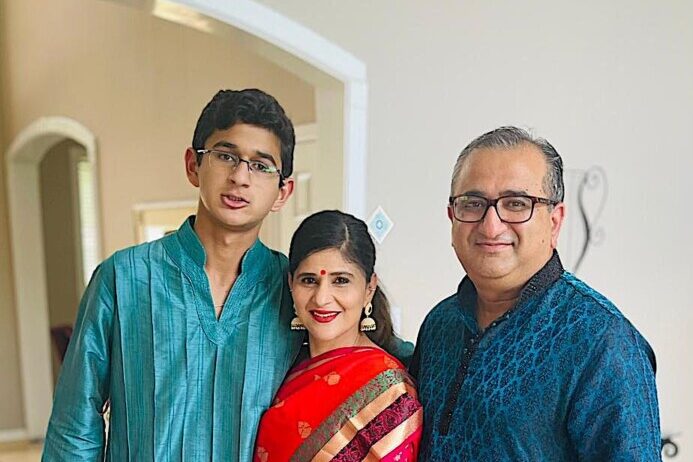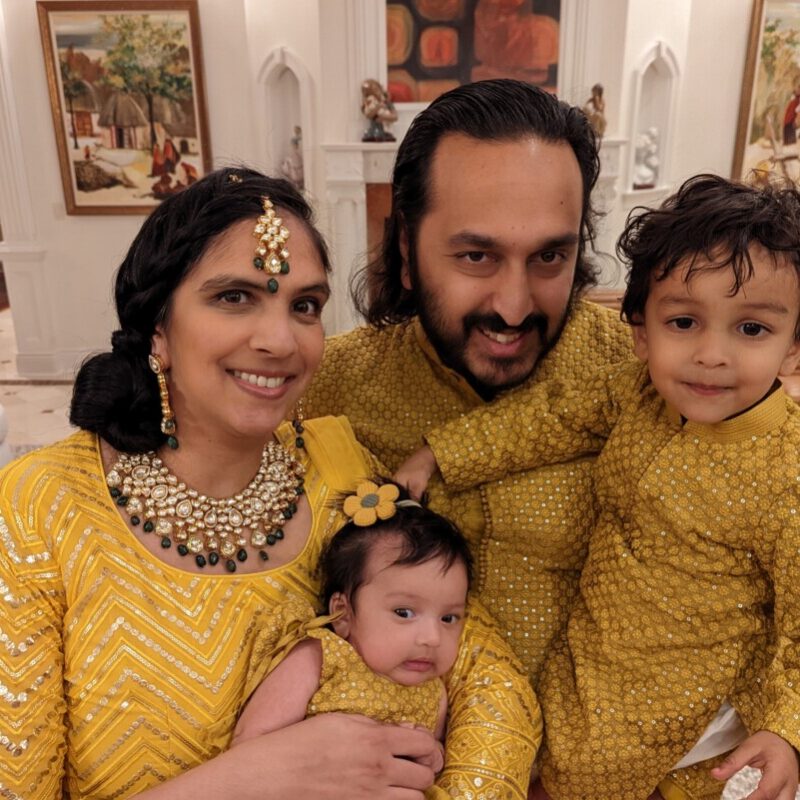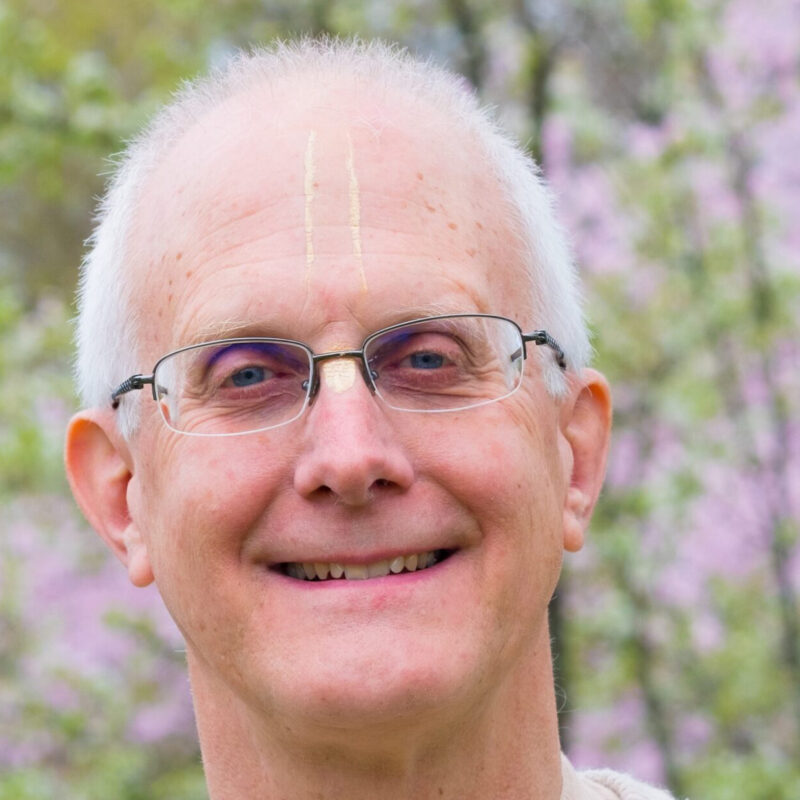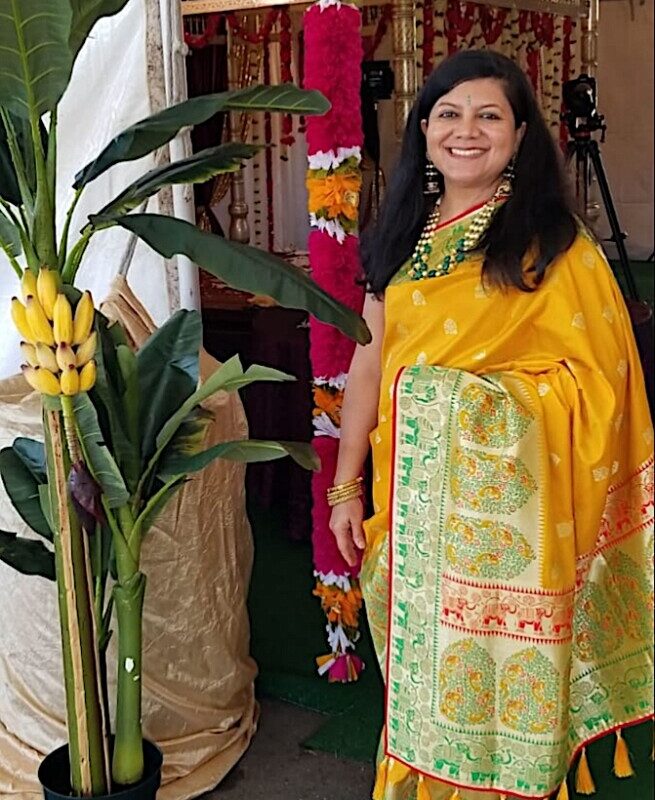
The supreme source of creation, according to Hindu texts, naturally comprises all of life’s dimensions, and therefore includes not only a masculine aspect, but a feminine one as well.
Known as Shakti, or the creative and energetic force of the Divine, the latter provides a spiritual balance to the former, and is thus revered by adherents through various goddess forms, who are particularly recognized during certain festivals of the year — a special one being Navaratri.
A nine-night observance that honors the role the loving, compassionate, and gentle, yet sometimes fierce, feminine energy plays in our lives, Navaratri is famously topped off with a 10th-day celebration of Vijayadashami (commemorating the victory of Goddess Durga over the demon Mahishasura).
Of course, with Hinduism being the incredibly diverse tradition it is, there are many who choose instead to spend the day meditating on a different victory, that of Rama over the demon-king Ravana. While, in this case, it isn’t a goddess directly who destroys the unscrupulous enemy, it is one who inspires such destruction, as it’s the immeasurable power of Sita’s love and devotion that fuels Rama’s drive to vanquish her dishonorable captor.
So, regardless of which pastime one chooses to focus on, the unrelenting light of Shakti dispelling the darkness of corruption is an ultimate lesson every celebration endeavors to appreciate. And, depending on the community, each can look a little different.
The following is an interview with Shivani Raina, a Kashmiri Pandit who immigrated to America in 2002. Having participated in the festivities most of her life, she shares with us her unique perspective: how she celebrated, how she celebrates now, how her outlook and appreciation have evolved over the years, and more.
What are your earliest memories of Navaratri and or Dussehra? What about the holiday period initially resonated with you?
I spent my early days growing up in Srinagar, the capital city of Kashmir, and because this Navaratri isn’t as significant there [there are multiple Navaratri’s throughout the year, but the autumnal celebration is generally the most widely observed], I don’t have strong memories of the festival.
I definitely remember Dussehra though. Every year my school bus used to pass this exhibition hall where an efigy of Ravana and his brothers would get built for almost a month before being burnt, leaving a residue of scattered ashes. A symbol of good overcoming evil, it’s the strongest memory I have of the festival growing up.
Can you describe, in detail, how you observe the festival time today? What, specifically, makes your community’s form of celebration unique to others?
While the autumnal Navaratri isn’t big in Kashmir, it’s integral to other parts of India, especially places like Gujarat and Maharashtra, where it’s elaborately celebrated with lots of garba (traditional folk dance). Because I did my undergrad in Gujarat, and because I now live in America where there’s a lot of cross pollination amongst different Hindu communities, I too now participate in the festivities. I’m actually going to a garba next weekend, hence my observance of the festival has changed quite a bit.
Fall is a busy time with many Hindu festivals actually, and though it isn’t traditional for Kashmiri Pandits to observe all of them, I kind of see myself as pan-Indian these days, so I pretty much celebrate everything.
How has your appreciation for the celebration evolved as you’ve gotten older? What about it, now, resonates with you the most?
I definitely think that when you’re a kid, you often observe a festival because you’re told. You do many things, in fact, because you’re told. You don’t really understand the depth behind why you’re doing what you’re doing.
But all of these festivals are a very important part of our culture, and to celebrate them means to celebrate our culture. As parents, we thus have to demonstrate these holidays so the younger generation can learn and imbibe them. Especially living in America, I feel I have the moral responsibility of doing certain things with extra fanfare than I would otherwise normally do, because you just have to make so much more of an effort in this country to keep your culture alive to pass on to your children.
What issues have you experienced in observing your celebrations in America?
I feel like there has been a general sense of unawareness, which can be difficult at times. If Diwali, for example, falls on a weekday, it can be hard for kids to find time to get their homework done. This was often a struggle with my son growing up. I would often just tell him to skip his homework during Diwali, and that I would write him a note, but he never wanted to be that boy who didn’t do his homework because he was celebrating his Hindu holiday. He didn’t want to be seen as different.
How do you believe the Hindu American Foundation [HAF] has helped in addressing those issues?
I think HAF has done a great deal in bringing awareness — whether it’s with our representatives, government officials, congress, local communities, local government agencies, etc. — about the significance of some of our holidays.
Diwali is such a popular and important holiday for Indians and Hindus, and HAF has done a lot in terms of getting it recognized in different states. I mean, not only is it celebrated in the White House, it’s now an official holiday in Pennsylvania, and I know a lot of schools in New Jersey have the day off too. A lot of this is due to HAF’s work. Even if you guys haven’t played an active role in certain states, the material you have on your website is fantastic, and has been used by many students to educate their schools, townships, and local representatives.
Even myself, when I wanted to celebrate Ganesh Chaturthi, which I wasn’t so familiar with as a Kashmiri Hindu, I was looking for some sort of guide and came across a resource on your website that provided a really concise and easy puja [worship] outline for Ganesh. I loved it, printed it, used it, and told all my friends about it.
What is your hope for the future, and what role do you believe HAF will play in helping to make it a reality?
Everything you guys are doing, from increasing awareness about Diwali, to clearing up the many misconceptions surrounding Hinduism, has been invaluable, and has been a cause for immense hope.
Just look at the recent work you guys did in helping to get California’s SB403 bill vetoed. It wasn’t very clear cut on the surface, but if that bill had passed, it would have been incredibly regressive for Hindus in America. It was really emerging from an element of misinformation that could have caused a lot of prejudice towards our community, and HAF played a major role in educating lawmakers and the public through social media, various webinars, and so much more. It’s phenomenal. I definitely feel like our voice as Hindu minorities here in North America can be heard through HAF. So you guys are very important. Thanks for doing everything you do.
How do you feel about being a part of the HAF community and watching it grow?
I feel so proud. I came to know about your organization, maybe 17 years ago, when I moved to Philly. From the impact you were making back then, to the impact you’re making now — it’s through immense dedication by all of you on the HAF team. So I just feel very proud. I know some friends there, and feel very proud every time I read about them.
If you enjoyed this piece, then you may also be interested in reading “On celebrating Navaratri and Dussehra: through the lens of HAF’s Community Outreach Director, Ramya Ramakrishnan“








































